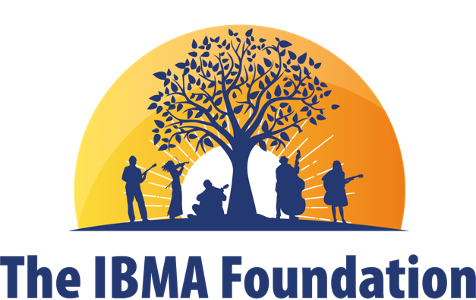Lamont Pearley, of Bowling Green, Kentucky, received an Arnold Shultz Fund grant in 2023 to help purchase a banjo and take five months of banjo lessons with regional banjo teacher, Jordan Riehms.
“We covered multiple ways to play ‘I’ll Fly Away,’ added more tunes to our regimen, and incorporated bluegrass music theory that assisted me in transferring my blues guitar experience to the bluegrass banjo style of play,” Lamont said. “My goal isn’t only for stage performance but to continue communal practice in the relevant spaces of blues, bluegrass, African American traditional expression, and diverse music expression. Jordan’s instruction is working me toward communal participation.
“As a traditional black country blues musician that now resides in Kentucky, receiving the Arnold Shultz Scholarship allowed me to take the baton of my musical ancestor and conserve one of our traditional expressions,” Pearley said. “I am grateful to the IBMA Foundation for the opportunity to work with one of the premiere musicians in my region, Jordan Riehms! We’ve built a relationship that continues to foster the hammer claw tradition, as we both love music. “
Lamont describes his connection from the blues to bluegrass: “My artistic practice derives from my Black Southern roots and tradition, which formed and informs my cultural practice called ‘the blues.’ I am known for upholding the integrity of blues music and culture. I learned from the folk, and the folk are the blues people. The blues people are the ancestors and descendants of the Great Migration, making me a conduit of ancestral sonic communication. However, I don’t only participate in blues via the music performance stage, festivals, and the like. I participate in the expression, vernacular, interaction, communal engagement, social activities, and spiritual worship with blues music through eating food, jokes, spending time with family, gathering on the back porch, playing music, and telling stories. With blues comes all offshoots of traditional expression, one specifically being bluegrass. Like the blues, bluegrass is considered isolated to one community and experience. Yet, we are now learning that there were Black Americans in Appalachia who were practitioners of the traditional bluegrass form.”
He continues: “Bluegrass is part of that story, from Arnold Shultz to Leslie Riddle. As a practitioner, applied folklorist, and ethnomusicologist, I not only work to conserve tradition, document, and create repositories of heritage, but also continue to be an active practitioner, making sure that I and my organization are conduits of the style and story through practice and performance. After the first year of lessons with Jordan, I have been more involved in bluegrass and banjo activities. I plan to participate in more performances and social gatherings that aren’t performance-based, but the traditional campfire-style practice that cultivated blues, bluegrass, and the like.”
Photo above: Lamont Pearley
RETURN to the April 2024 issue of The Cornerstone.


Recent Comments